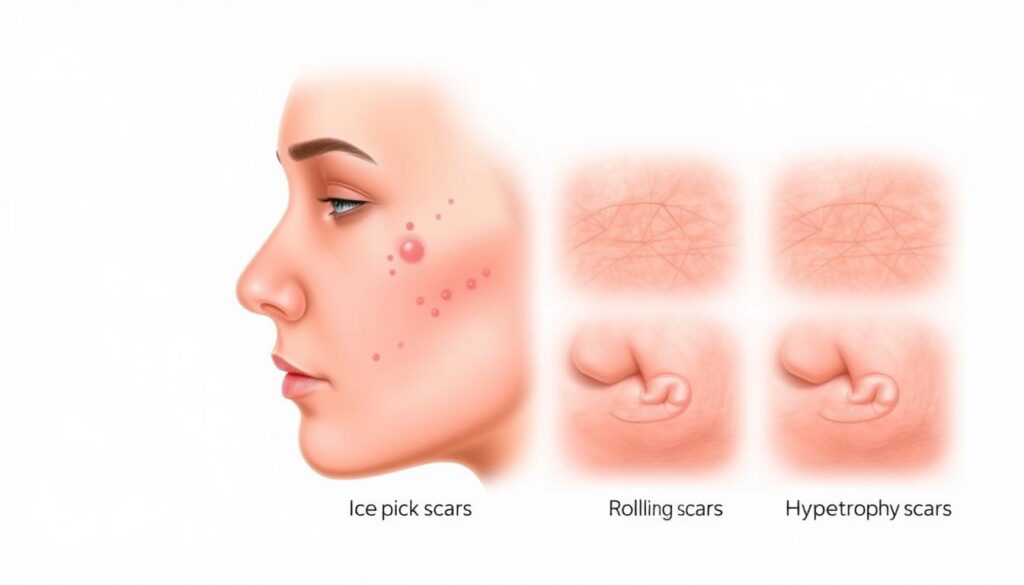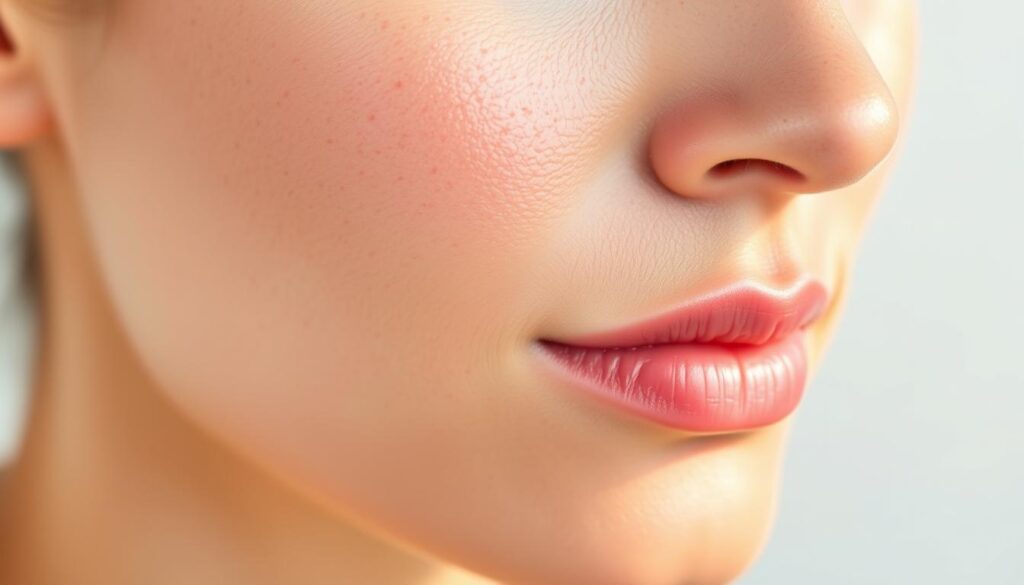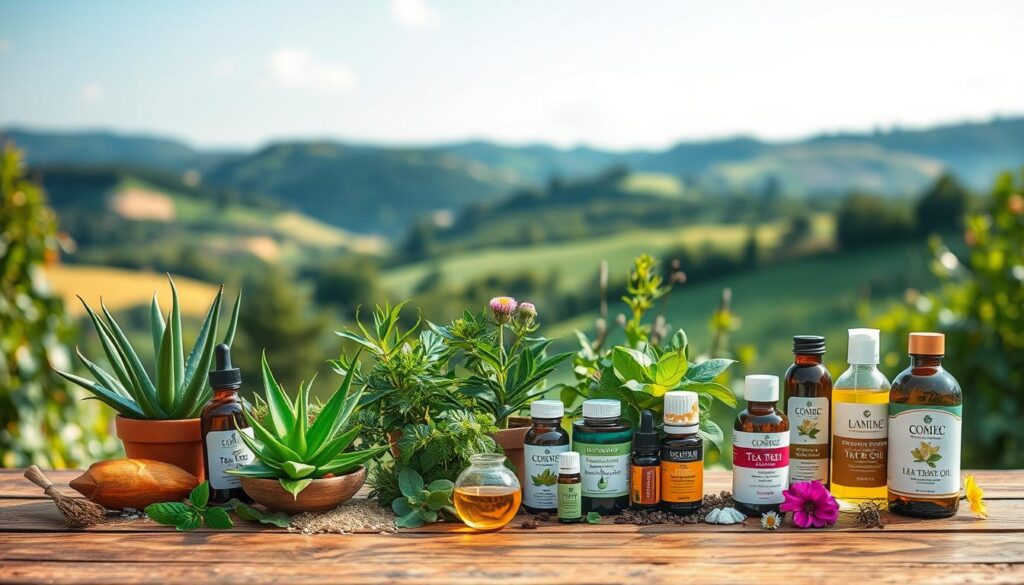Are you tired of acne scars that won’t go away? You’re not alone. Many of us face this problem, looking for ways to make our skin glow again. The good news is, you don’t need harsh chemicals or expensive treatments to fix acne scars.
How to deal with acne scars naturally? you need a few things. First, use home remedies and make lifestyle changes. Also, stick to a good skincare routine. By knowing why acne scars happen and using the right treatments, you can make your skin look better.
For more such content VISIT: https://besttopt10.com/
Key Takeaways
- Effective natural remedies can help reduce acne scars.
- Lifestyle changes can improve skin health and reduce scarring.
- A consistent skincare routine is key for clearer skin.
- Understanding the causes of acne scars is important for treatment.
- Combining treatments can lead to better results.
Understanding Acne Scars and Their Types
Acne scars can remind you of past breakouts. Knowing the types of scars is the first step to treating them. When you understand your scars, you can choose the best treatment for your skin.
What Are Acne Scars?
Acne scars happen when acne lesions damage the skin. This damage can cause indentations, discoloration, or raised areas. The look and severity of scars vary based on skin type and acne intensity.
Different Types of Acne Scars
There are several types of acne scars, including:
- Atrophic scars, which are depressions or pits from lost skin tissue.
- Hypertrophic scars, which are raised and can be itchy or painful.
- Pigmented scars, which show as dark spots due to skin color changes.
Knowing the type of scar you have is key to finding the right treatment.

The Science Behind Healing
Healing acne scars involves boosting collagen, reducing inflammation, and preventing more damage. Treatments and home remedies like aloe vera and honey can help. Professional dermatological treatments also play a role.
Niacinamide serums helps so much to reduce acne scars.
Understanding how scars heal helps you choose the best treatments for your skin.
Natural Remedies for Acne Scars
Looking for ways to clear your skin? Natural remedies can help heal acne scars. They are effective and gentle, fitting many skin types.
Aloe Vera: Nature’s Healing Agent
Aloe vera is known for its anti-inflammatory powers. It soothes and heals the skin. It’s packed with vitamins A, C, and E, and antioxidants that help skin grow back.
To use aloe vera, apply gel to scars and leave it on for 30 minutes. Then, rinse with lukewarm water. Doing this regularly can make scars less noticeable. Aloe vera also keeps skin moist, which aids in healing.

Honey: The Moisturizing Miracle
Honey is great for treating acne scars. It’s moisturizing and fights bacteria. Honey keeps scars from looking worse and makes skin soft.
Apply raw honey to scars and leave it on all night. Rinse with warm water in the morning. Doing this often can lead to better results.
Essential Oils for Skin Regeneration
Essential oils like lavender and tea tree oil help heal acne scars. They reduce inflammation and boost collagen, which is key for new skin.
Mix a few drops of essential oil with a carrier oil like coconut or jojoba. Apply it to scars and massage it in. This helps the oil absorb and heal the skin.
The Role of Diet in Skin Health
A well-balanced diet is key to healthy skin and reducing acne scars. What you eat affects your skin’s healing and growth.
Nourishing Foods for Healthy Skin
Eating fruits, vegetables, and omega-3 fatty acids is good for your skin. Include these foods in your diet:
- Leafy greens like spinach and kale, which are rich in antioxidants
- Berries such as blueberries and strawberries, which are high in vitamin C
- Fatty fish like salmon, which are rich in omega-3 fatty acids
- Nuts and seeds, which are good sources of healthy fats and antioxidants
These foods fight inflammation and help your skin heal. This can make acne scars less noticeable.
Foods to Avoid for Minimizing Scarring
Some foods can harm your skin, while others help it. Avoid foods high in sugar, dairy, and processed ingredients. They can cause inflammation and scarring.
- Processed foods and sugary snacks
- Dairy products, specially for those who are lactose intolerant
- Refined carbohydrates, which can cause inflammation
By avoiding these, you can lower inflammation and scarring risk.
The Importance of Hydration for Skin Health
Drinking enough water is vital for healthy skin. It helps remove toxins and keeps your skin moist. This leads to a clearer, brighter complexion.
Drink at least eight glasses of water a day for hydrated skin. Also, eat hydrating foods like watermelon and cucumbers to boost your hydration.
Skin Care Routine for Acne Scars
To get clear skin after acne scars, you need a good skincare routine. Knowing the right products and techniques for your skin can help. This way, you can lessen the look of scars and make your skin healthier.
Cleansing Techniques for Scar Reduction
Cleansing is key, even more so with acne scars. Use a gentle cleanser that fits your skin type. Massage it on your face for 30 seconds before rinsing with lukewarm water. Pat dry with a clean towel to avoid irritation.
- Choose a cleanser with salicylic acid or glycolic acid for exfoliation and unclogging pores.
- Avoid harsh cleansers that can take away your skin’s natural oils, making scars worse.
- Cleanse your face twice a day to keep it clean and prevent more breakouts.
Exfoliation: How and When to Exfoliate
Exfoliation is important for reducing acne scars. It helps with cell turnover and collagen production. But, do it right to avoid irritating your skin.
- Go for a chemical exfoliant with alpha-hydroxy acids (AHAs) or beta-hydroxy acids (BHAs) for gentle exfoliation.
- Exfoliate 1-3 times a week, based on your skin type and sensitivity.
- Be gentle; avoid harsh physical exfoliants that can damage your skin.

Moisturizing Tips for Scar Healing
Moisturizing is essential for keeping your skin hydrated and helping scars heal. Even if you have oily skin, the right moisturizer can balance your skin’s moisture.
- Find a moisturizer with hyaluronic acid, ceramides, or niacinamide for skin repair and hydration.
- Apply moisturizer right after cleansing and exfoliating, when your skin is damp, to keep moisture in.
- Don’t forget to moisturize your neck and other areas prone to scarring.
By adding these skincare steps to your daily routine, you can work towards clearer skin after acne scars. Remember, consistency and patience are important. It might take time to see the results.
Lifestyle Changes That Help Reduce Scarring
Making a few simple changes to your daily routine can help reduce the appearance of acne scars. By incorporating healthy habits into your lifestyle, you can naturally promote the healing process and improve the overall health of your skin.
Sleep: The Foundation of Skin Repair
Getting adequate sleep is key for skin repair. During sleep, your body regenerates and heals damaged skin cells. This is essential for reducing the appearance of acne scars. Aim for 7-8 hours of sleep per night to help your skin recover.
- Establish a consistent sleep schedule
- Create a relaxing bedtime routine to improve sleep quality
- Avoid screens and bright lights before bedtime
Managing Stress for Better Skin
High stress levels can lead to inflammation, which can worsen acne and scarring. Practicing stress management techniques can help mitigate this effect. Techniques such as meditation, yoga, and deep breathing exercises can help reduce stress and promote overall skin health.

- Try mindfulness meditation to calm your mind
- Engage in physical activities like yoga or walking
- Practice gratitude journaling to reduce stress
Protecting Your Skin from the Sun
Sun protection is vital for safeguarding scarred skin. UV rays can cause further damage and darkening of scars, making them more noticeable. Using a broad-spectrum sunscreen with at least SPF 30 daily can help prevent this.
- Apply sunscreen 15 minutes before going outdoors
- Reapply sunscreen every 2 hours or immediately after swimming or sweating
- Wear protective clothing, such as hats and sunglasses, for added protection
By incorporating these lifestyle changes into your daily routine, you can naturally aid in healing acne scars and improve the overall appearance of your skin.
When to Seek Professional Treatment
Natural remedies and lifestyle changes can help with acne scars. But, some cases need professional help for the best results. If you’re dealing with lasting or severe scars, looking into more options is key.
Start with over-the-counter creams and serums with retinoids or vitamin C. These can make your skin look better and reduce scars. For even better results, try chemical peels, microneedling, or laser therapy.
Effective Treatment Combinations
Using natural methods and professional treatments together is a great approach. This way, you tackle scars from different angles. It helps your skin look healthier and more vibrant. Talk to a skincare expert to find the right treatment for you.
FAQ
Q: What are the most effective natural remedies for acne scars?
Aloe vera, honey, and essential oils like lavender and tea tree oil are great. They help soothe, moisturize, and regenerate the skin. This reduces acne scars’ appearance.
Q: How can diet impact the appearance of acne scars?
Eating fruits, vegetables, and omega-3 fatty acids promotes healthy skin. Avoiding sugar, dairy, and processed foods helps too. It reduces inflammation and scarring risk.
Q: What is the best skincare routine for reducing acne scars?
A good skincare routine includes cleansing, exfoliating, and moisturizing. Tailor it to your skin type. Be patient, as results take time.
Q: Can lifestyle changes really help reduce acne scarring?
Yes, lifestyle changes can make a big difference. Adequate sleep, stress management, and sun protection are key. They promote skin health and reduce scars.
Q: When should I seek professional treatment for acne scars?
If natural remedies and lifestyle changes don’t work, seek professional help. Treatments like chemical peels, microneedling, or laser therapy can offer better results.
Q: Can I combine natural and professional approaches to treat acne scars?
Yes, using natural remedies with professional treatments is a good idea. This combines the best of both worlds. Natural remedies can be used with treatments like chemical peels or laser therapy.
Q: How long does it take to see results from natural remedies for acne scars?
Results from natural remedies vary by individual and scarring severity. Be consistent and patient. It may take weeks or months to see improvements.
Q: Are there any specific products that can help reduce acne scarring?
Products with retinoids, vitamin C, or niacinamide can help. Look for products that match your skin type and concerns.

